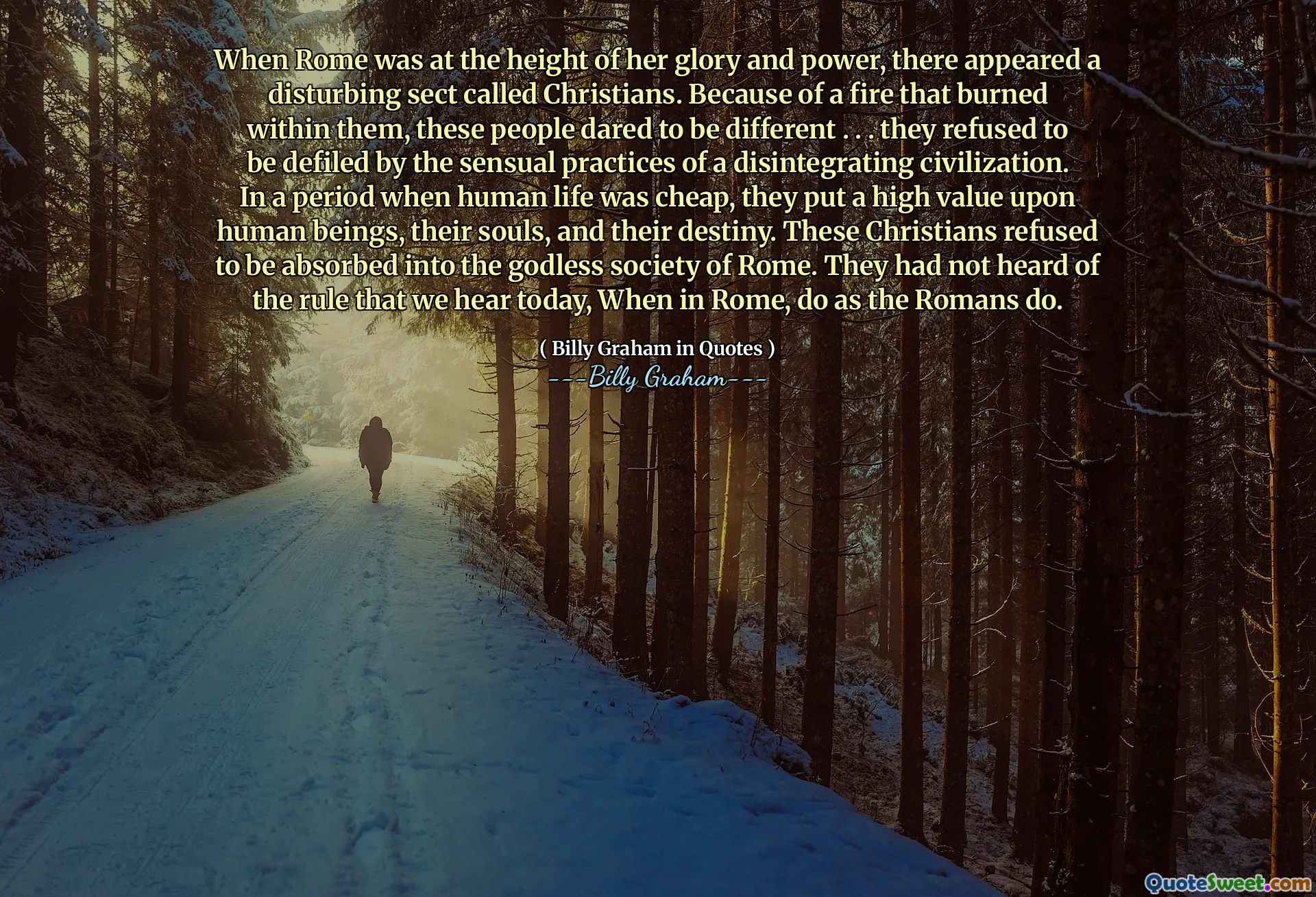
When Rome was at the height of her glory and power, there appeared a disturbing sect called Christians. Because of a fire that burned within them, these people dared to be different . . . they refused to be defiled by the sensual practices of a disintegrating civilization. In a period when human life was cheap, they put a high value upon human beings, their souls, and their destiny. These Christians refused to be absorbed into the godless society of Rome. They had not heard of the rule that we hear today, When in Rome, do as the Romans do.
This quote offers a profound reflection on the courage and moral integrity of early Christians amidst the decadence of Roman society. It highlights how their internal 'fire'—a metaphor for passion, conviction, and unwavering faith—drove them to stand apart from a civilization that was increasingly indulgent and dismissive of human dignity. The contrast drawn between the Christian ethos and the pagan norms underscores the importance of moral conviction over societal conformity. In today's context, this message is timeless; it challenges individuals to remain true to their core values despite external pressures to conform. The early Christians' refusal to participate in the immoral practices of their time exemplifies an admirable commitment to morals, spirituality, and human worth. Their stance reminds us that true strength often requires defiance against popular currents to uphold integrity and moral principles. This quote also invites reflection on how societal norms evolve and how crucial it is for individuals to distinguish between conforming to societal expectations and adhering to their ethical convictions. In modern times, it encourages us to evaluate what 'being in Rome' means for us personally, urging a thoughtful approach to when to conform and when to stand firm in our beliefs. Ultimately, it speaks to the enduring power of conviction—an inspiring reminder that standing up for what is right can serve as a beacon for others, no matter the societal context.











